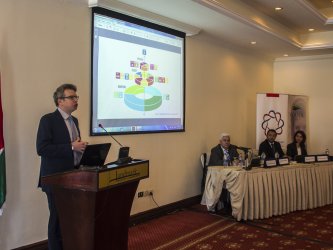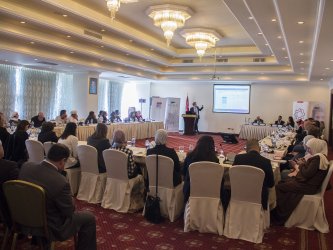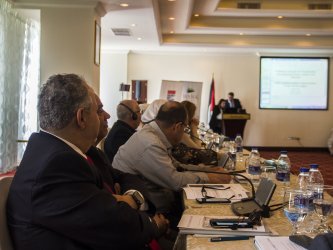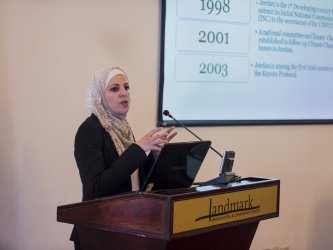Pathways towards the Sustainable Development Goals: Jordan and Beyond
On April 24, the West Asia - North Africa Institute (WANA) and Friedrich-Ebert-Stiftung (FES) brought together 50 key stakeholders from Jordan and the Arab region to share SDG implementation opportunities. The conference marked the beginning of a series of roundtable discussions to recommend ways forward for the national implementation of the water, energy and climate change strategies in Jordan and beyond.
The 17 Sustainable Development Goals (SDGs) were adopted by a high-level plenary meeting of the UN General Assembly on September 27, 2015. For the West Asia - North Africa (WANA) region, the SDGs are particularly great news as they call for immediate action at both the international and national level.
This change in approach is particularly important as international actors have long dominated sustainable development, leaving little space for state-based empirical approaches. "The SDGs advocate national ownership,” Dr. Muhammad Saidam, Chief Scientist at the Royal Scientific Society, noted.
“Since the 2030 Agenda for Sustainable Development does not include proposals for national implementation, we need to adapt the SDGs to local conditions in Jordan and increase local accountability,” he continued. “Science, society and policy makers will have to cooperate to implement them.”
The WANA Institute and FES decided to focus on SDG6, SDG7 and SDG13, three goals related to water, energy and climate change. These fields are highly interrelated, so an integrated approach is needed to tackle problems related to them.
“Energy, Water and the aspect of Climate Change are cross-cutting issues that are fundamental to all of the Sustainable Development Goals and central to development, security and poverty reduction,” said Richard Probst, Regional Coordinator of FES at the sideline of the event.
Photos by Mo'taz Sulaiman




